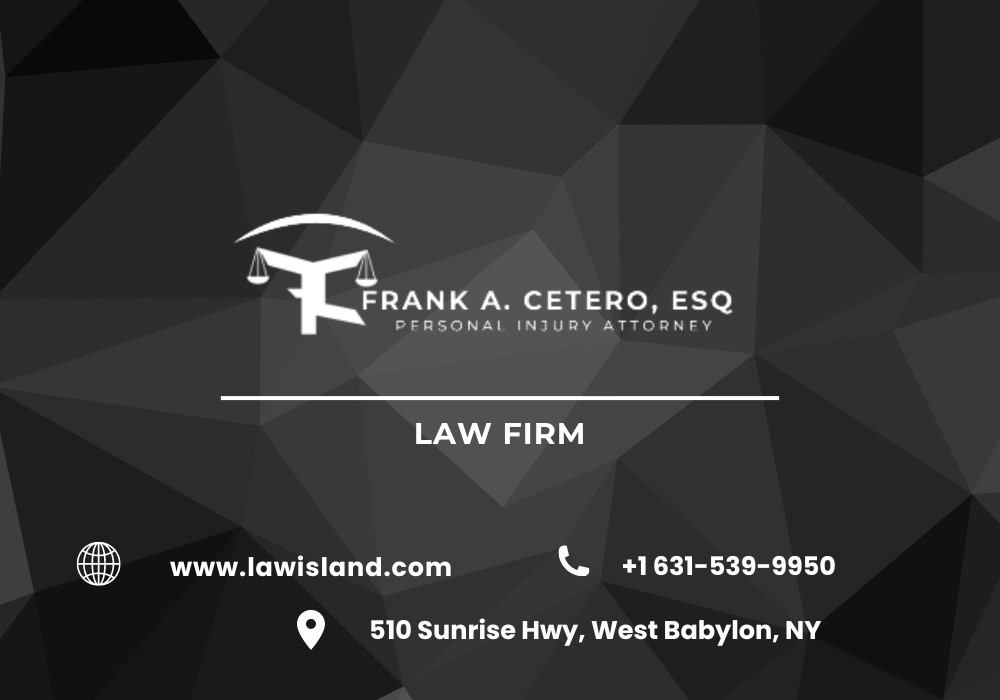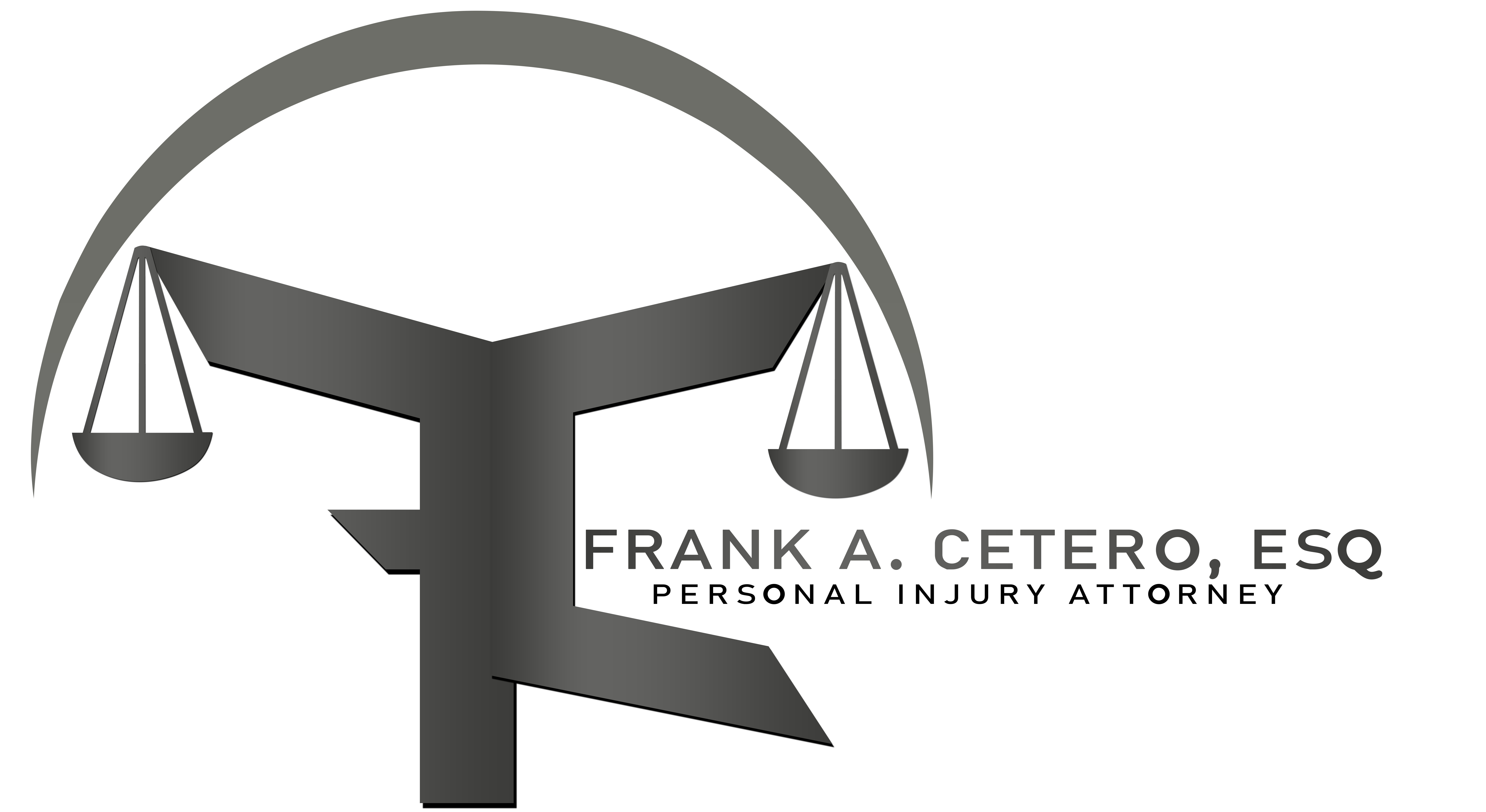In addition to the stress of being in an automobile accident, interacting with insurance companies can complicate matters further. For those living on Long Island, the Long Island Insurance Process is crucial to ensure that you receive the compensation you deserve for any damages or injuries sustained. You will be able to comprehend the complexities of auto accident claims and be prepared with the knowledge and tools needed to defend your rights with the help of this comprehensive book.
Understanding the Basics of Car Insurance on Long Island
Before diving into the steps of Handling Insurance Companies, it’s essential to have a clear understanding of the Long Island Insurance Process. Whether you’re dealing with repair shop selection, determining the actual cash value of your vehicle, or deciding between original equipment manufacturer parts and aftermarket options, these factors all play a role in how your repair costs are covered. Get in touch with us right now to arrange a free consultation and to begin the process of obtaining the funding and assistance you need to proceed. This no-fault system restricts your ability to sue the at-fault motorist unless there is a significant injury, but it also attempts to ensure that claimants receive fast benefits without having to prove blame.
Steps to Take Immediately After a Car Accident
- Ensure Safety First: Your priority after a car accident should always be the safety of yourself and others involved. If at all feasible, flee to a secure area and dial 911 to report the collision.
- Gather Evidence at the Scene: Collecting evidence at the accident scene is crucial for Handling Insurance Companies. Take pictures of the accident scene, any visible injuries, and the damage to all of the involved automobiles. Also, gather contact information from witnesses and the other driver.
- Report the Accident to the Police: In Long Island, you must report any accident that results in injury, death, or significant property damage to the police. The police report will be an important piece of evidence when Handling Insurance Companies.
- Seek Medical Attention: Even if you don’t feel seriously injured, it’s important to seek medical attention as soon as possible. Even while they might not always be obvious right immediately, some injuries can nonetheless have long-term effects.
- Notify Your Insurance Company: Report the accident to your insurance company immediately. Give them all the necessary information, but don’t give them too much information simultaneously. This step is critical in Handling Insurance Companies and ensuring your Car Accident Claims process starts smoothly.
How to Handle Insurance Companies After a Car Accident
1. Understand Your Insurance Policy
One of the first steps in Handling Insurance Companies is to thoroughly understand your insurance policy. The kinds of coverage you have, including liability, collision, comprehensive, uninsured/underinsured motorist, and personal injury protection (PIP), are described in your insurance contract. Knowing what your policy covers and the limits of your coverage will help you navigate the claims process.
- Liability Coverage: This covers damages or injuries you cause to others in an accident.
- Collision Coverage: Covers damages to your vehicle in an accident, regardless of fault.
- Comprehensive Coverage: This covers damages to your vehicle not caused by a collision, such as theft or natural disasters.
- Personal Injury Protection (PIP): Covers medical expenses and lost wages for you and your passengers, regardless of fault.
- Uninsured/Underinsured Motorist Coverage: Covers your expenses if the at-fault driver lacks insurance.
2. File Your Claim Promptly
When it comes to Handling Insurance Companies, timing is crucial. After the accident, you should file your Car Accident Claims with your insurance company immediately. Give them the police report, your medical records, and any proof you gathered from the site, along with any other documents you feel they need.
- Step-by-Step Process for Filing a Claim:
- Contact Your Insurance Company: Notify your insurer about the accident and provide them with the basic details.
- Submit Required Documents: Provide your insurance company with the police report, photos, medical bills, and any other relevant documents.
- Cooperate with the Investigation: Your insurance company will likely investigate the accident. Collaborate with them, but watch what you say.
3. Be Cautious in Communication
Effective communication is key in Handling Insurance Companies. However, it’s important to be cautious about what you say. Insurance adjusters are trained to minimize payouts, so they may try to use your statements against you. When communicating with your insurance company or the at-fault driver’s insurer:
- Stick to the Facts: Provide only the basic facts about the accident. Avoid speculating about fault or admitting any liability.
- Don’t Sign Anything Without Legal Advice: If the insurance company asks you to sign a release or settlement agreement, don’t consult a lawyer first.
- Keep Records: Document all communications with the insurance company, including the dates, times, and content of your conversations.
4. Dealing with Insurance Adjusters
Insurance adjusters must investigate your claim and determine the appropriate amount of money. Handling Insurance Companies involves knowing how to deal with adjusters effectively.
- Understand the Role of the Adjuster: The adjuster works for the insurance company, not for you. Their goal is to minimize the payout.
- Don’t Accept the First Offer: The first settlement offer is often lower than what you’re entitled to. Be prepared to negotiate.
- Provide Evidence to Support Your Claim: The more evidence you have to support your claim, the stronger your negotiating position will be.
5. Negotiating a Settlement
Negotiating a fair settlement is a critical part of Handling Insurance Companies. The following advice can help you negotiate successfully:
- Know the Value of Your Claim: Before entering into negotiations, calculate the total value of your Car Accident Claims. This should cover any related pain and suffering, lost income, medical expenses, and property damage.
- Be Prepared to Walk Away: If the insurance company’s offer is too low, be prepared to reject it and consider other options, such as mediation or legal action.
- Consider Hiring a Lawyer: If negotiations stall or the insurance company is acting in bad faith, it may be time to consult with a personal injury lawyer who specializes in Handling Insurance Companies.
6. Understanding the No-Fault Insurance System
Long Island, along with the entirety of New York State, is protected by a no-fault insurance program, as was previously mentioned, connected to suffering and agony. Understanding how this system works is crucial for Handling Insurance Companies.
- Personal Injury Protection (PIP): Under the no-fault system, your PIP coverage will pay for your medical expenses, lost wages, and other related costs up to the limits of your policy, regardless of who was at fault for the accident.
- Threshold for Suing: While the no-fault system restricts your ability to sue the at-fault driver, you can still file a lawsuit if your injuries meet the serious injury threshold, which includes significant disfigurement, bone fractures, permanent limitation of a body organ, or substantial disability.
7. Handling Claims Involving Uninsured or Underinsured Drivers
Unfortunately, not all drivers carry adequate insurance. If you’re involved in an accident with an uninsured or underinsured driver, Handling Insurance Companies becomes even more challenging. Provide the claims adjuster with the police report, your medical records, and any proof you gathered from the site, along with any other documents you feel they need within a reasonable period.
Filing an Uninsured/Underinsured Motorist Claim:
- Report the Accident: Notify your insurance company that the at-fault driver was uninsured or underinsured.
- Provide Evidence: Submit all relevant evidence, including the police report and witness statements, to support your claim.
- Negotiate the Settlement: Just like with other Car Accident Claims, you may need to negotiate with your insurance company to reach a fair settlement.
8. Dealing with Denied or Delayed Claims
Even with the greatest of intentions, an insurance company may occasionally reject your claim or postpone payment. In these situations, Handling Insurance Companies can become frustrating, but there are steps you can take to challenge the decision.
- Understand the Reason for Denial: Insurance companies must provide a reason for denying your claim. Review their explanation carefully and determine whether it’s justified.
- Appeal the Decision: If you believe your claim was wrongfully denied, you can appeal the decision. Give more proof or explanation to back up your claims.
- File a Complaint: If your insurance company is acting in bad faith or not processing your claim promptly, you can file a complaint with the New York State Department of Financial Services.
- Consider Legal Action: In extreme cases, you may need to take legal action against the insurance company. Consult with a lawyer who specializes in Handling Insurance Companies to explore your options.
9. Settling Your Claim vs. Going to Court
If your policy covers underinsured or uninsured drivers, you can make a direct claim with your insurance provider. Handling Insurance Companies often involves weighing the pros and cons of settling versus going to court.
- Benefits of Settling: Settling your Car Accident Claims allows you to avoid the time, expense, and uncertainty of a trial. It also ensures that you receive compensation more quickly.
- When to Go to Court: If the insurance company’s offer is unreasonably low or acts in bad faith, it may be worth taking your case to court. A successful lawsuit may result in greater compensation, but there are dangers.
What is an Insurance Company?
Handling Insurance Companies
Handling Insurance Companies refers to the process of managing interactions with your insurance provider, particularly after an event like a car accident. This involves understanding your policy, communicating effectively with insurance representatives, and navigating the claims process. The goal of Handling Insurance Companies is to ensure that you receive fair compensation for any damages or injuries sustained in the accident.
Key aspects of Handling Insurance Companies include:
- Understanding Your Policy: Knowing the details of your insurance coverage, including what is and isn’t covered, helps you make informed decisions.
- Filing a Claim: This is the formal process of informing the insurance company about the accident and requesting compensation.
- Communicating with Adjusters: Insurance adjusters are responsible for assessing the damages and determining the amount of compensation. It is crucial to be cautious and precise in your communication with them.
- Negotiating Settlements: Often, the first offer made by an insurance company is lower than what you may deserve. Handling Insurance Companies effectively involves negotiating for a fair settlement.
- Dealing with Denials or Delays: If an insurance claim is denied or delayed, it is important to understand your rights and know how to appeal the decision.
Insurance Company
An Insurance Company is a business that provides financial protection against various risks, including car accidents, property damage, and personal injury. The insurance provider agrees to pay certain costs in the event of a loss or accident in exchange for a regular premium.
Key functions of an Insurance Company include:
- Underwriting: The process of evaluating the risk of insuring a person or asset and determining the terms of the insurance policy.
- Claims Processing: When an insured event occurs, such as a car accident, the insurance company processes claims to determine if they are valid and how much compensation should be paid.
- Providing Coverage: An insurance company offers various types of coverage, such as liability, collision, comprehensive, and personal injury protection (PIP).
- Risk Management: Insurance companies manage the risk of large payouts by pooling premiums from many policyholders and investing those funds.
Rental Vehicle
A Rental Vehicle is a temporary vehicle provided to you, usually through a rental agency when your vehicle is unavailable due to repair, damage, or other circumstances. After a car accident, you might need a Rental Vehicle if your car is being repaired or if it was totalled and you’re waiting for a replacement.
In the context of Handling Insurance Companies, securing a Rental Vehicle often involves the following steps:
- Contacting Your Insurance Company: Inform your insurer that you need a Rental Vehicle due to the accident. If you experience a loss or damage, the insurance provider offers to reimburse some costs in exchange for regular monthly payments made in compliance with the conditions of your policy.
- Checking Your Coverage: Not all insurance policies automatically include coverage for a Rental Vehicle. You’ll need to verify whether your policy includes rental reimbursement coverage.
- Selecting a Rental Agency: Your insurance company may have preferred rental agencies, but you can often choose any reputable rental company.
- Understanding the Terms: Make sure you understand how long the Rental Vehicle will be covered and any limitations on the type of vehicle you can rent.
Rental Reimbursement Coverage
Rental Reimbursement Coverage is an optional addition to your auto insurance policy that covers the cost of renting a vehicle while your car is being repaired or replaced due to a covered loss, such as an accident. This coverage is an essential part of the Long Island Insurance Process, ensuring you can travel without paying out of pocket for a rental car.
Key points about Rental Reimbursement Coverage include:
- Coverage Limits: Most Rental Reimbursement Coverage policies have daily and total limits. For instance, the policy may cover the cost of the rental up to $30 per day or a maximum of $900 for the period of the rental.
- Eligibility: This coverage typically kicks in only if your car is being repaired for a covered loss. It may not apply if your car is in the shop for routine maintenance or non-covered issues.
- No-Fault Situations: Even in no-fault insurance states like New York, Rental Reimbursement Coverage is helpful because it allows you to get a rental car quickly without waiting for the other driver’s insurance to accept liability.
- Cost: Adding Rental Reimbursement Coverage to your policy usually increases your premium slightly, but it can save you money and hassle if your car is ever out of commission due to an accident.
Tips for Protecting Your Rights
When Handling Insurance Companies after a car accident, protecting your rights is paramount. Here are some more pointers to assist you in completing the process:
- Document Everything: Keep detailed records of all communications with the insurance company and any expenses related to the accident.
- Don’t Settle Too Quickly: Insurance companies may pressure you to settle quickly, but it’s important to take your time and ensure that the settlement offer is fair.
- Consult with a Lawyer: If you’re unsure about any aspect of the claims process, consulting with a lawyer specializing in Car Accident Claims can provide valuable guidance.
- Know When to Seek Medical Advice: Even if you feel fine after the accident, it’s essential to get a thorough medical examination. Contact us right now to set up a free consultation and to start the process of securing the capital and support you require to move forward.
Common Mistakes to Avoid
Handling Insurance Companies effectively requires avoiding common mistakes that could jeopardize your claim. The following are some hazards to be aware of:
- Admitting Fault: Never admit fault or apologize at the accident scene or when speaking with the insurance company. Even a simple apology can be used against you.
- Providing Too Much Information: While you should cooperate with your insurance company, avoid giving unnecessary details that could be used to deny or reduce your claim.
- Failing to Follow Medical Advice: If you’re injured, following your doctor’s recommendations is important. Failing to do so could weaken your Car Accident Claims by suggesting that your injuries aren’t as severe as you claim.
- Ignoring Deadlines: In New York, you typically have three years from the accident date to file a personal injury lawsuit, but insurance companies may have shorter deadlines for filing claims. Make sure you’re aware of all relevant deadlines.

Contact The Law Office of Frank A. Cetero for Expert Guidance and Support
At The Law Office of Frank A. Cetero, we recognize how difficult and frustrating it may be to navigate the Long Island Insurance Process following a car accident. Whether it’s issues related to vehicle registration, the repair process, or ensuring your damaged vehicle gets the necessary repairs promptly, we are here to assist. Our devoted staff is committed to ensuring you get the compensation you are due, and we have years of expertise with car accident claims in Long Island. Don’t navigate this complex process alone—let us advocate for your rights and protect your interests. Contact us right now to set up a free consultation and to start the process of securing the capital and support you require to move forward.

